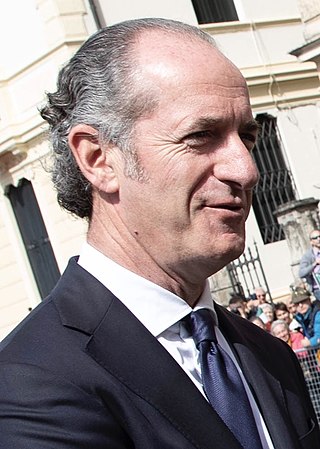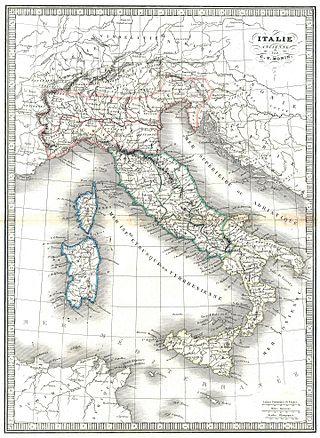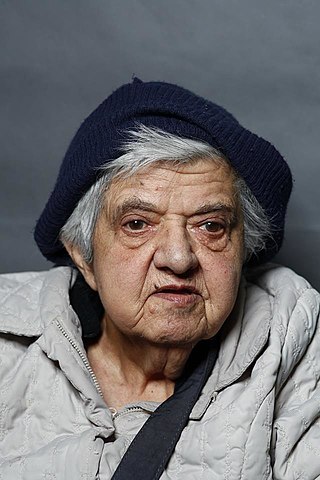Related Research Articles

Lesbian, gay, bisexual, and transgender (LGBT) people in Belarus face legal challenges not experienced by non-LGBT residents. Although same-sex sexual activity is legal in Belarus, gay and lesbian rights in the country are otherwise severely limited and homosexuality remains highly stigmatized in Belarusian society. Households headed by same-sex couples are not eligible for the same legal protections available to opposite-sex couples. Belarus provides no anti-discrimination protections for LGBT people, nor does it prohibit hate crimes based on sexual orientation and gender identity. Many Belarusian people believe that homosexuality is a psychiatric illness, and many LGBT persons in Belarus tend to hide their sexual orientation in public. Those who are "out" face harassment, violence and physical abuse.

Lesbian, gay, bisexual, and transgender (LGBT) people in Iraq face severe challenges not experienced by non-LGBT residents. Openly LGBT individuals are subject to criminal penalties under the 2024 law making homosexual relations punishable by up to 15 years in prison with fines and deportation; the 2024 law also criminalizes and makes punishable by prison time promoting homosexuality, doctors performing gender-affirming surgery, and men deliberately acting like women. Discrimination is also widespread. Openly gay men are not permitted to serve in the military and same-sex marriage or civil unions are illegal. LGBT people do not have any legal protections against discrimination and are frequently victims of vigilante justice and honor killings.

Luca Zaia is an Italian politician, who has been President of Veneto since 2010, and a historical member of Lega Nord, other than being the most progressive member of his own party. Supporter of initiatives to tackle climate change, gender-affirming surgery, the recognition of transgender people to identify with their preferred sex, and main protagonist of the fight against homophobia and antisemitism, he often rose to prominence for his positions contrasting the lines of his own party, in particular for the ones concerning the welcoming of immigrants and his model of "integrazione diffusa" of migrants coming to Europe.

Lesbian, gay, bisexual, transgender, and queer (LGBTQ) people in Turkey face legal challenges not experienced by non-LGBTQ residents, though the overall situation is considered to be less repressive when compared to most other Muslim-majority countries.
Sr Jeannine Gramick, SL is an American Catholic religious sister and advocate for lesbian, gay, bisexual, and transgender rights. She is also a co-founder of New Ways Ministry.

Lesbian, gay, bisexual, and transgender (LGBT) rights in Italy significantly advanced in the 21st century, although LGBTQ people still face various challenges not experienced by non-LGBT residents, despite public opinion being increasingly liberal and in favor of LGBT rights. According to ILGA-Europe's 2021 report, the status of LGBT rights in Italy is below the standards of other Western European countries – such as still not recognizing same-sex marriage, lacking nationwide discrimination protections for goods and services, as well as not granting to same-sex couples full parental rights, such as joint adoption and IVF. Italy and Japan are the only G7 nations where same-sex marriages are not recognized.

Autonomia Operaia was an Italian leftist movement particularly active from 1973 to 1979. It played an important role in the autonomist movement in the 1970s, alongside earlier organisations such as Potere Operaio, which was created after May 1968, and Lotta Continua.

Arcigay is Italy's first and largest worldwide gay organisation. The association was first founded as a local association in Palermo in 1980, then nationally established in Bologna in 1985. The organisation became known throughout Italy for its campaign for civil unions. The President of Arcigay is Natascia Maesi, the first woman leading Arcigay since its creation. The secretary is Gabriele Piazzoni. Franco Grillini, a historical figure and previous president of Arcigay, is now honorary president. From its creation to the present, Arcigay has welcomed the birth of many subsidiary associations in Italy's various realities, and there are now several dozen territorial communities, often bounded by the territories of Italian provinces. Founder and president of the territorial committee of the Province of Imperia is the Italian mathematician Marco Antei

Luigi Calabresi was an Italian Polizia di Stato officer in Milan. Responsible for investigating far-left political movements, Calabresi was assassinated in 1972 by members of Lotta Continua, who blamed him for the death of anarchist activist Giuseppe Pinelli in police custody in 1969. The deaths of Pinelli and Calabresi were significant events during the Years of Lead, a period of major political violence and unrest in Italy from the 1960s to the 1980s.
The Guadalajara Pride is an event that celebrates diversity in general and seeks equal rights for LGBT people, is celebrated in the city of Guadalajara, Mexico.

Prima Linea was an Italian Marxist–Leninist terrorist group, active in the country from the late 1970s until the early 1980s.

The 2010–11 Serie B is the seventy-ninth season since its establishment in 1929, and the first one under the rule of the new Lega Serie B. A total of 22 teams contest the league, 15 of which returned from the 2009–10 season, 4 of which have been promoted from Lega Pro Prima Divisione, and three relegated from Serie A.

Peter LaBarbera is an American social conservative activist and the president of the anti-gay organization Americans for Truth about Homosexuality (AFTAH).

This article is about lesbian, gay, bisexual and transgender (LGBT) history in Italy.

Historically speaking, lesbian, gay, bisexual, and transgender (LGBTQ) people have not been given equal treatment and rights by both governmental actions and society's general opinion. Much of the intolerance for LGBT individuals come from lack of education around the LGBT community, and contributes to the stigma that results in same-sex marriage being legal in few countries (31) and persistence of discrimination, such as in the workplace.

Maria Antonietta Macciocchi was an Italian journalist, writer, feminist and politician, elected to the Italian Parliament in 1968 as an Italian Communist Party candidate and to the European Parliament in 1979 as a candidate of the Radical Party.
Minsk Pride is a gay pride parade in Minsk, Belarus. This is a festival in support of tolerance for gays, lesbians, bisexuals and transgender people in Belarus.

LGBT history in Chile encompasses a broad history related to gender and sexuality within the country of Chile. Oftentimes this history has been informed by the diverse forms of governments that have existed within Chile, including colonialism, military dictatorship, and democracy. Global events like the AIDS epidemic also had an impact on Chilean LGBT history. There are also multicultural elements with the different cultural perceptions of gender and sexuality from indigenous groups and Spanish influence.
Marcello Landi (1916–1993) was an Italian painter and poet.

Mariasilvia Spolato was an Italian activist for LGBT rights, lesbian feminist, magazine founder and publisher. She was one of the pioneers of the homosexual rights movement and the first woman in Italy to publicly declare her homosexuality. For this reason she was discriminated and persecuted, losing her job as a maths school teacher in 1972. In the 1970s Spolato was also active in the "Pompeo Magno" feminist collective in Rome. In 1971 she was one of the founders of the organization Fuori! ("Out!"), acronym of Fronte Unitario Omosessuale Rivoluzionario Italiano and of its eponymous periodical.
References
- ↑ Fraddanni, Stefania (May 24, 1979). "Identificato l'uomo assassinato nella pineta vicino a Livorno" [Man murdered in pine forest near Livorno identified](PDF). L'Unità (in Italian). p. 14.
- ↑ "Gli omosessuali pisani denunciano il clima di violenza" [Pisan homosexuals denounce climate of violence](PDF). L'Unità (in Italian). July 26, 1979. p. 10.
- ↑ Giornale Lambda, n. 24, p. 5
- ↑ Lotta Continua, November 6, 1979
- ↑ Giornale Lambda, n. 25, p. 2
- ↑ Barilli, Gianni Rossi (May 7, 1999). Il movimento gay in italia[The Gay movement in Italy] (in Italian). Feltrinelli. p. 123. ISBN 9788807815591.
- ↑ Lotta Continua, Pagina Frocia, December 7, 1979
- 1 2 Lotta Continua, Pagina Frocia, November 29, 1979
- ↑ "Pisa79: the first Pride against homophobia in Italy". en.clickintuscany.com. 15 September 2023. Retrieved 2024-10-08.
- ↑ Lotta Continua, November 22, 1979
- ↑ Giornale Lambda, n. 24 p. 4
- ↑ "Pisa 1979-2009. La Prima Marcia Gay 30 Anni Dopo". YouTube . 15 January 2014.
- ↑ "Pisa 1979-2009. La Prima Marcia Gay 30 Anni Dopo - la scheda del film".